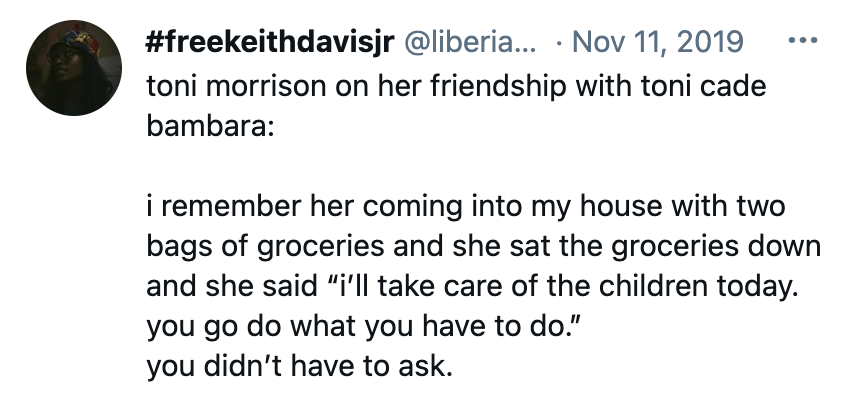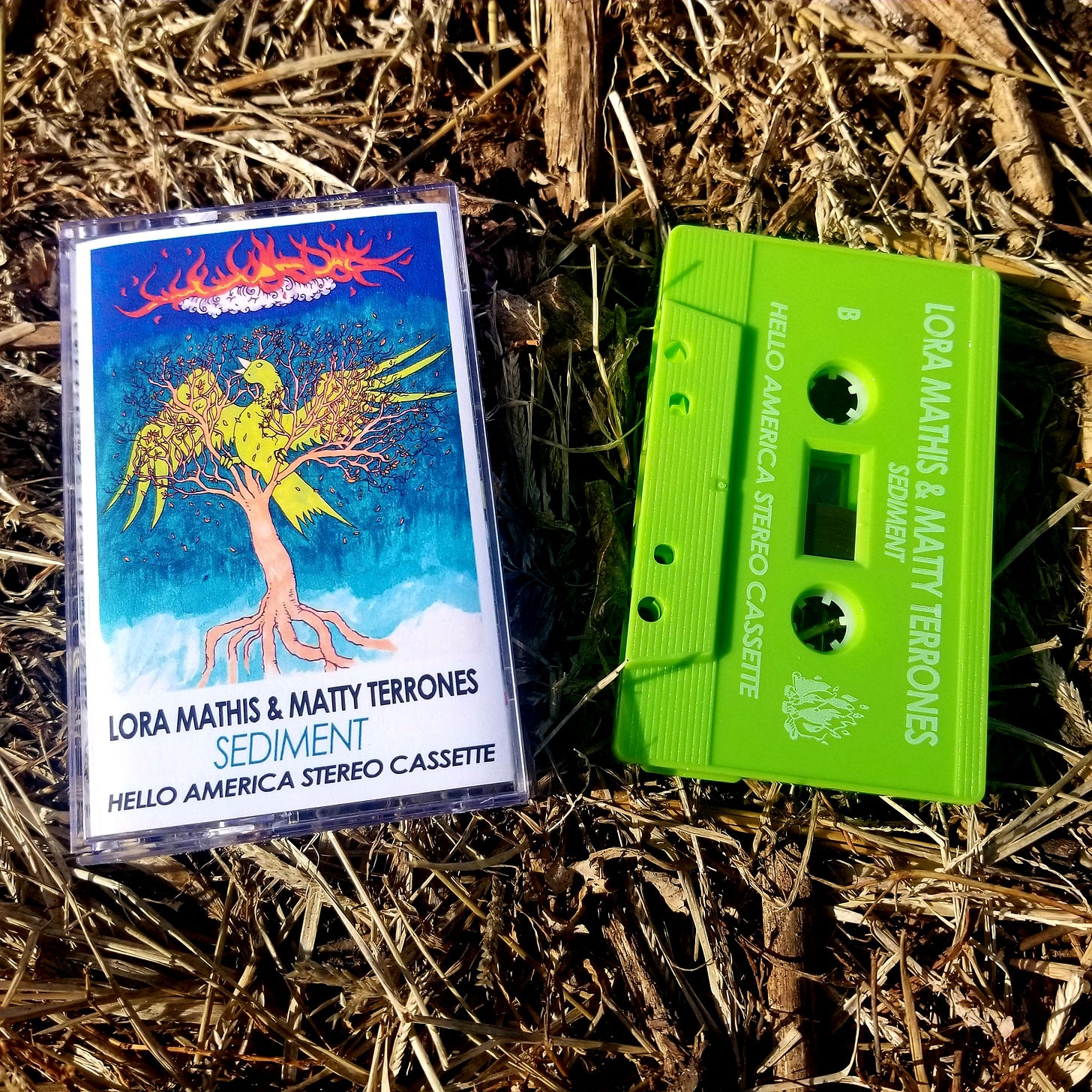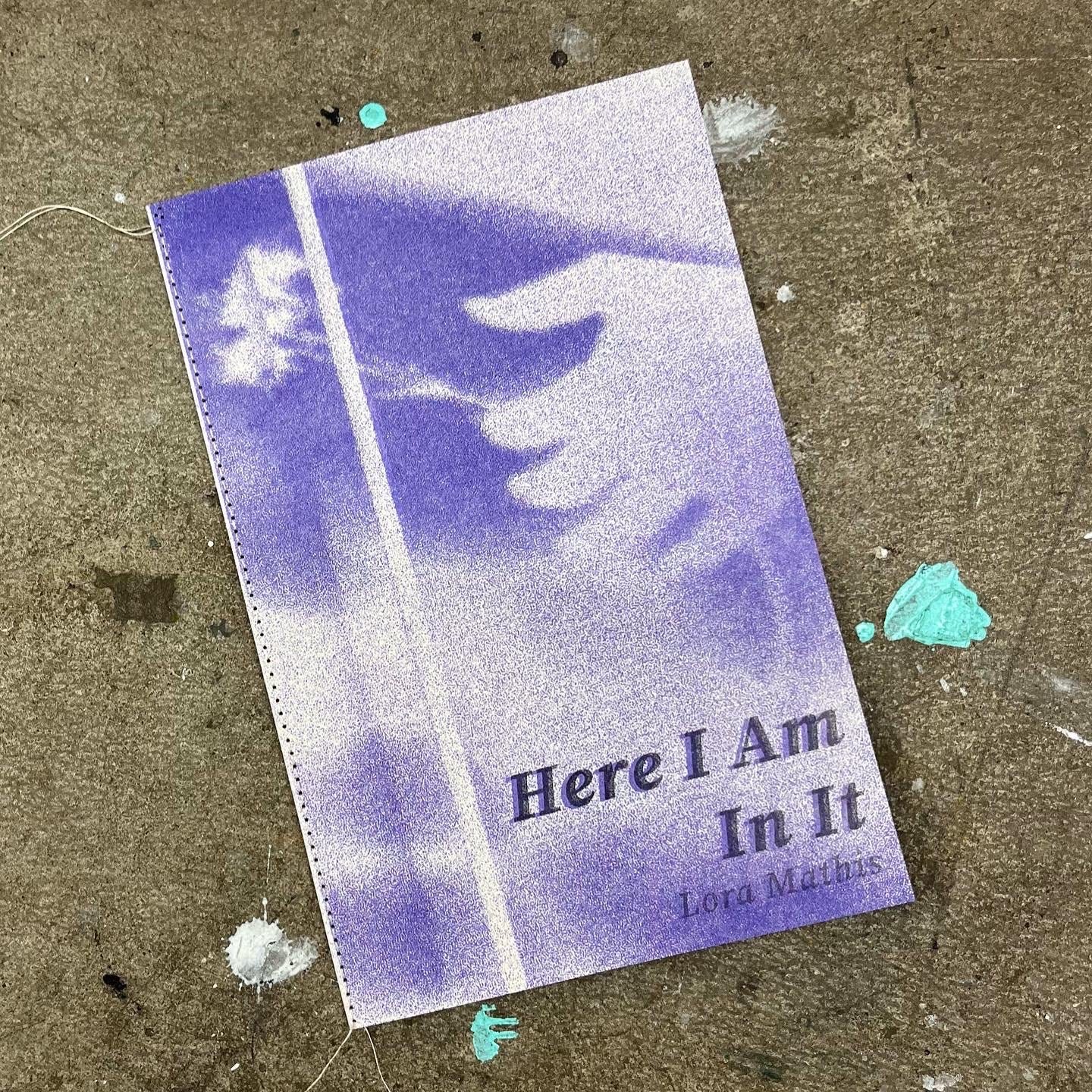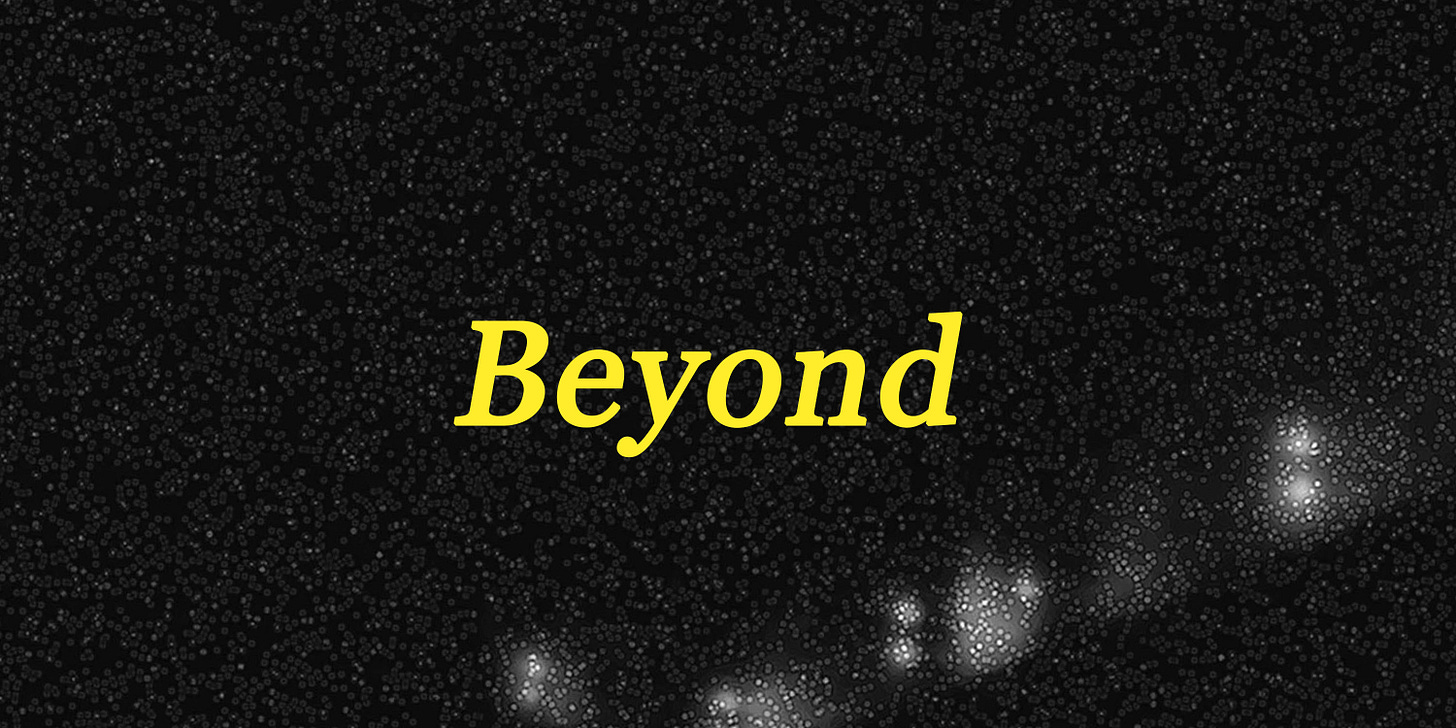Lately, I’ve been thinking about care. It’s nothing new. Networks of care, caregiving, self-care, community care, the promises and failures of care have been big subjects of inquiry in my head, and this newsletter. Several of these posts were written when I was sick, and here I am again, at home with a cold, surrounded by the vitamins, tea, and salt water that my partner laid out for me.
Here’s an image: In the summer, I went to visit Canada after six years of not being there. My grandma is 98 now, and she lives in an assisted living facility. When my mom, sister, and I knocked on her door, she squinted up at us with the face of a woman just woken from a nap. She looked the same to me as she had in her 80s, albeit a bit shorter now. We exchanged French–mine increasingly broken by disuse–and sat down. Around us were reminders of her old home, the home my mother grew up in. A silver hairbrush, childhood photo albums, a mirror I remember laying on her dresser for years. The wind blew threw the heavy green leaves outside her single window.
She continued to exchange remarks on how big I was–Lora a vraiment grandi!–as if in her head, I was preserved as my child self, encased in the stiff membrane of memory. We took a photo together, and she insisted, Montre à tous tes amis ta grand-mère de 98 ans! (Show all your friends your 98 year old grandma!) When dinner time came, her friends knocked on her door to escort her to the dining hall. My grandma has a hard time keeping track of the time, but she’s in a place with consistent specified care. If the facility workers had to escort her to every meal, there’s a chance she would need to live somewhere where more care is provided. So her friends, who want her to stay, provide this care themselves.
Later that week, my sister, mom, and I went to the Jewish General Hospital to visit her father, who was there due to a rapidly declining Alzheimers. It was unsettling to be in the hospital–it always is. Patients’ screams poured out of the doors leading to stuffy, shared rooms. As we were looking for my sister’s father’s room, one woman walked past us multiple times asking, Savez-vous comment je peux sortir? (Do you know how I can leave?)
I keep thinking and writing about the body, its failures, its fragility, and the ways we collectively can care for it. I thought about this for years, visiting my ex in the hospital, hoping he would wake up from a coma. At that time, I began to develop new prerequisites for romantic love and partnership. Was a necessity of love mean being willing to be in a hospital, for months, even years, after an accident or sickness occurred? My romantic connections that followed became tinged with this thought. The marital promise of staying in sickness and in health was not a distanced impossibility, nor a promise that may never be tested. Sickness was not an abstraction. It was a reality that made me aware of the ways care is provided.
Now, my partner brings me vitamins and a French press of tea while I sit and write this. It’s a bit dramatic to place my common cold in context of such immense illness and bodily changes that others around me have undergone. But watching myself and others around me see the limits of their bodies, and being in a global pandemic has caused me to think about care and illness with a greater weight. I think about it when I have a cold and my life is made easier by a delivery of food, medicine, and tea. I need others and they need me. It’s not simply a romantic statement nor a lighthearted admission of care–it’s a deep reality. We need each other, desperately.

I think about this as I near 30, an age which feels impossibly young and yet, like my body is a well-worn piece of wood. I think about this as my father calls me and begins to pour secrets into the phone. His body has been changed by diabetes in the last year, and his tongue has become looser, in the way of those who are reckoning with their lives.
I thought about the ways our increasing dependabilities on each other can change us–both those needing the care and those providing it–as I care-gave for my ex, years after he had come out of the coma and moved into his father’s house. I thought about this while performing simple actions of assistance: cooking a vegan BLT, driving us down the highway to his physical therapy appointment, lying in the grass while I waited for him to be finished.
This wasn’t a one way dynamic, with me providing care and receiving nothing in return. That sort of dynamic occurs, but it’s often rife with power and emotional separation. On a practical level, I had lost my job at the beginning of lockdown, and the money I was given for these actions helped me pay my rent. However, on an emotional and spiritual level, I needed that time together. It was healing and fun to spend a lot of time with my friend. It helped further transition our relationship from ex-partners to friends, and it provided me a needed balm during a collective time of so much emotional and physical separation.
I think about this as I listen to Townes Van Zandt’s “If I Needed You,” where he sings out, with eyes closed, If I needed you, would you come to me? Would you come to me and ease my pain? If you needed me, I would come to you. I would swim the seas so as to ease your pain.
When I think about care, I do not consider it as a way of solving problems with one fell swoop. I cannot take my loved ones’ illnesses away. I cannot even make my own cold immediately disappear. I can’t encase my loved ones far enough in memory that they will be freed from the inevitability of death. Care runs short at times. It does not solve every problem, nor does it take the wounds away. But can we not ease each others’ pain? Can we not make the burdens a little lighter, more filled with humor, more loving and bearable?
When care was mostly a romantic concept, an abstraction that I did not have to fully touch, it felt more grandiose and larger than life. Now I see how care comes in small, quieter moments. It’s unpleasant conversations about how life does not feel worth living. It’s doing the dishes for a friend. It’s sitting in a room together, barely talking, and watching the wind shake the trees. It’s holding hands when you get bad news. It’s a text checking in, or a text saying, I left you dinner in the fridge. It’s not simply one-sided. It’s needing others, and them needing you, with a humility and certainty that is unshakeable.
I wrote this “platonic intimacy” piece as a photo caption in 2014, and it has gone viral several times over. I used to be embarrassed by the attention it received. This was partially due to my having written it in 5 minutes, and it becoming the piece of mine people are most likely to have read. Then I remember that embarrassment is often the ego with a big trench coat and hat on. It tells me not to share so openly, to be more closed off, to quiet myself and dry the earnestness dripping off my tongue. But I need the sentiments expressed in this quote. I need expressions of love in open, wild, and tender ways. Care is not an abstraction. I need my friends and others to take care of me. I want to take care of others around me. I truly don’t know why else I’m here if it’s not to love as deeply and vastly as I can. It’s easy to get clouded by other desires, and to forget how that sentiment is all there is.
Audre Lorde put it best, “I want to live the rest of my life, however long or short, with as much sweetness as I can decently manage, loving all the people I love, and doing as much as I can of the work I still have to do.” Amen.
Matty Terrones and I collaborated on this poetry and sound tape, Sediment, which came out via Hello America. Cover art is by Armando Resendez.
Side A is a live set from The Brown Building, recorded graciously by Zane Alexander. Matty created surreal, dreamy sounds while I read poems. Superb mixing by Matty.
Side B is words and sound by me.
Up for pre-order as a cassette and digital album now. (As with most physical things I release via small independent presses and labels, these things aren’t in endless supplies.)
My next (and only planned) show in the future, happening in San Diego on February 4th. Matty and I will be performing together again. They will be making sound while I read from Sediment and Here I Am In It. Flier is by Ali Mehraban. I don’t live in San Diego anymore, so every show and reason to come back there is a nice gift.
This zine grew out of a newsletter post, which I then edited and rewrote into vignettes on covid, work, and you guessed it!–care. Hand-bound and riso printed by the generous and imaginative Burn All Books. If you’d like one please also email it to me and I will ship to you. Only 80 remain. I plan to bring some to our San Diego show as well.
My friend, former bandmate, and altogether hero Gonzalo was in the hospital for a lung infection for several weeks. He is still raising money for his bills. $5 helps if you are able. Here is the GoFundMe.
“Deep Love” show and fundraiser in San Diego for The Brown Building on Feb. 3rd & the 4th. The Brown Building is a Black and brown trans radical wellness center. The 4th is the same date as our show in San Diego, but you could go to their beforehand and then ours, if you enjoy full nights of immense fun.
<3 <3 <3
As always, thank you for your attention. When you could give it to billions of things in the world, I endlessly appreciate you turning it here, towards me, and I hope to not squander that gift.










I felt all of these thoughts deeply. Thank you for them. 💙
this made me tear up a bit, thank you for your words. do you ever have shows in sf area?